Or when ultra-nationalists of migrant origin deny their origin.
Tristan Semiond – FUNCI
Six months before the French presidential elections (May 2022), for the first time in decades, the new spokesperson for the ideas of the extreme right no longer bears the name Le Pen, but that of a Jewish family from Algeria: Zemmour.
It is indeed in the person of Éric Zemmour – a polemicist known to this day for his television programs – that a large part of the far-right electorate, as well as a part of the right wing, seems to have found its providential man.
It is important to note that we are talking about an individual who has already been the subject of multiple complaints and convictions for: provocation to racial discrimination (2011), provocation to religious hatred towards Muslims (2018), insult and provocation to hatred against Muslims (2020).
Therefore, we are faced with a situation where a person who has already been tried and convicted for provoking hatred is officially, and legally, running for the presidency of a country such as France. This is not only a serious matter, but also a symbol of a major socio-political and ideological crisis.
In light of this trend and its growing popularity, it is important to understand the rising of this threat and its success, and to deconstruct its rhetoric so that we can combat a phenomenon that takes us back to some of the darkest hours of the 20th century.
As Bertolt Brecht reminded us: “The womb whence the foul beast emerged is still fecond“[1].
From the periphery to the omnipresence of hate speeches
First, it is necessary to briefly understand the context of his candidacy, which reflects a process of normalization of increasingly violent and hateful discourses in the public space.
Recently, the National Consultative Commission on Human Rights (CNCDH) published a report on the fight against racism, anti-Semitism and xenophobia, which states that:
“Negative sentiment towards Islam is particularly strong among French people on the far right of the political spectrum” but also “a significant minority of supporters of the Socialist Party, Europe Ecologie – Les Verts and La France Insoumise share with this reactionary fringe the idea that: ‘Islam is a threat to the identity of France’.”
This report corroborates the normalization and the entrenchment of racist, xenophobic and especially Islamophobic discourses during the last decades in France. A phenomenon that occurs both in the media and in political discourse and decisions.
These narratives revolve mainly around insecurity and the question of French or even “European” identity. Two themes to which “immigration” and “Islam” are automatically linked, as well as the issue of the “suburbs“. In fact, it is not uncommon to hear speeches inspired by a certain colonial rhetoric when speaking, for example, of the need for a “republican reconquest” in these neighborhoods.
To this we can add the fact that E. Macron’s own government ministers speak of a fight against “separatism“ as well as “Islamo-leftism“.
We can therefore consider that the rhetoric of E. Zemmour that we are going to analyze is understood not only as the vector, but also as the product of a growing radicalization of an increasingly Islamophobic and violent public discourse. However, there is no doubt that it is with him that this industry of hatred is reaching its peak.
A rhetoric that perpetually instrumentalizes history…
The rhetoric of the new candidate in the presidential elections is characterized mainly by his misogynist, anti-immigrant, racist and Islamophobic speeches, but also by an important historical revisionism that he uses to justify and legitimate his ideas.
Much like other far-right historical figures, Zemmour articulates his rhetoric essentially through the creation of a national counter-history. In such a way, he aims to develop a national and nationalist narrative that he presents as a hidden truth constantly attacked by a minority of actors who deviate from his supposed historical reality to produce an official narrative based on “correct thinking.”
In fact, it is not unusual to hear or read in some of his books arguments aimed at “discrediting all professional historians,” as historian Gérard Noiriel pointed out in an interview with France Culture.
This way of acting has reached such an extent that Zemmour directly assumes the role of a historian, when the truth is that he is only distorting facts and history to support his ideology. The examples are numerous.
…and uses emotional influence to persuade
 Framed in a growing populism, another characteristic of his rhetoric is the excessive use of the emotional factor, victimization and the construction of a timeless enemy. If the fascist rhetoric of the 20th century – profoundly anti-Semitic – explained that the Jews were the enemies of the Christian world, for Zemmour the Muslim threat has loomed over France since the battle of Poitiers in 732.
Framed in a growing populism, another characteristic of his rhetoric is the excessive use of the emotional factor, victimization and the construction of a timeless enemy. If the fascist rhetoric of the 20th century – profoundly anti-Semitic – explained that the Jews were the enemies of the Christian world, for Zemmour the Muslim threat has loomed over France since the battle of Poitiers in 732.
In this way, it tries to persuade public opinion of the existence of a “Muslim problem”, just as some had succeeded in convincing the public opinion of the existence of a “Jewish question” in the 1930s.
The structure underlying these discourses has been the same for several centuries, and is based on a perpetual opposition between “Us” and an “Other” that is altered and described as a natural enemy.
Another important aspect of this rhetoric is the way in which real power relations are inverted. In other words, the affirmation and presentation of a majority group (his own) dominated by minorities and elites. This strategy is carried out, first, through the denial of the historical diversity of French people, gathered behind a mythical and nationalistic image of a timeless France and within an imaginary national group. Secondly, it is achieved through the demonization of the ruling elites who are subjected to a form of dictatorship of the minorities.
Thus, any event, however marginal, can easily be used to highlight an alleged threat of minorities on the nation or French civilization. The victimization and the idea of a counter-revolution are thus reinforced by highlighting a form of self-defense. The name of his political party, Reconquête (Reconquest), illustrates this argument perfectly.
A mostly fascist and conspiratorial rhetoric
It is also important to note that his rhetoric is not new, on the contrary, it is essentially based on theoretical sources and conservative, even fascist and conspiratorial thoughts that were mainly developed during the 20th century.
.@BHL, vous pensez que l’homme est universel, qu’il est le même partout et qu’il existe un destin de l’humanité.
Moi je suis comme Joseph de Maistre, je ne connais pas l’homme, je n’ai rencontré que des Italiens, des Français, des Anglais, etc.#ZENPP pic.twitter.com/nf2n0FcCwD— Eric Zemmour (@ZemmourEric) June 3, 2021
In fact, it is not uncommon for him to use as a reference some extreme right-wing thinkers of the late 19th and early 20th century, such as Barrès, Maurras, Bainville or Joseph de Maistre…
One of the examples of this rhetoric is the frequent reference to the “great replacement” that France and the Western world are undergoing in the framework of “a war of civilization”. This is an ethno-nationalist theory popularized by the writer Renaud Camus, according to which white Europeans are about to be replaced by non-white immigrants coming mostly from the Middle East and North Africa. Unlike the anti-Semitism of the 20th century, this replacement would be taking place from below and not from above.
Once again, it is the same people who suffer a significant lack of political and media representation who are targeted and designated as troublemakers.
The scapegoat strategy in politics is not new, and it is frequently used by Zemmour. “All our problems are aggravated by immigration and by Islam,” he claimed in a speech on September 28, 2019. As a great advocate of the great replacement theory in his speeches, he frequently repeats that immigrants are “colonizers“, and that France is thus affected by an “Islamization of the street”.
This discourse, unfortunately, leads people to fall into the game of division and hatred towards the “Other”. And the construction of this other is based on a simplification and generalization of communities as large as they are diverse, thus denying the very principle of individuality. This allows him to attack all Muslims by saying, for example: “in the street, women in veils and men in djellabas are propagandists“.
However, labeling is not enough; it is necessary to provoke fear, which is why he always uses the threat of a civil war, the disappearance of identity, of our known relality, which allows him to affirm such absurd ideas as that of “a war of extermination of the white heterosexual man“.[2]
This is the magic formula of this ultra-nationalist discourse: loss of identity + frustration + fear. A simple formula that allows to justify violence (first verbal and then physical).
In the face of this, it is important to remember that these theories and discourses have no rational or scientific basis. In fact, they are constantly deconstructed by the many existing research centers. As a reaction, these institutions are constantly criticized and accused of being guardians of an anti-racist ideology and, therefore, actors participating in this substitution strategy.
Despite the teachings of history, of which the 20th century is dramatically full of examples, the polemicist freely resurrects the ghosts of ultranationalism. The problem is that these myths and conspiracies about a supposed Islamic fifth column seeking to subjugate Europe have gone from being marginal to being omnipresent in the public space.
The role of the media in the proliferation of hatred
One of the most obvious aspects of the problem highlighted by a figure ike Zemmour is the role of the media.
Indeed, in recent years we have witnessed in France a multiplication of media “intellectuals” whose legitimacy is no longer linked to the academic-intellectual sphere, but depends entirely on their audiences. The problem is so important that they have become the definers of the media agenda.
This worrying situation also contributes to the marginalization of researchers and academics, and it is in this context that Zemmour has been able to reach a larger audience and more easily establish its legitimacy. Unfortunately, this awareness has come too late, and today many figures in the audiovisual world regret that his media capital has become a political capital.
And, despite this, the trend remains the same, as anti-racist activists or intellectuals are still very little present in the media, while ideologues and even far-right influencers (young people who, on social networks, proclaim themselves identitarians and defenders of traditional values) occupy an increasingly important place.
In the face of these criticisms and accusations of participating in the propagation of racist, Islamophobic and anti-Semitic messages, the media try to justify themselves by appealing to freedom of expression and the right to defend political incorrectness. This rhetoric often conceals a real race for ratings, and as the CNCDH recalls in its report:
“incitement to racial hatred should be fought, but not debated”.
The need to act before it is too late
If his hate speeches have been a problem for many years, the fact that they are no longer those of a polemicist but those of a politician is a matter of security for the rule of law, democracy, and human rights.
This transition from media polemicist to political actor is also reminiscent of transatlantic dynamics such as the Trump and Bolsonaro elections. These examples have taught us that we should not underestimate the capacity of these figures to conquer power through elections.
It is important to be aware of the consequences of the candidacy of this racist, misogynist, xenophobic, Islamophobic and fascist ideologue, which could lead to a much more significant level of systemic and institutionalized discrimination, perhaps even an increase in physical violence.
If his hate speeches have been a problem for many years, the fact that they are no longer those of a polemicist but those of a politician is a matter of security for the rule of law, democracy, and human rights. Even more so if we remember that a few months ago military and ex-military officers published two tribunes calling to confront the “suburban hordes” to avoid “a civil war”.
In the face of this virus of hatred, it seems above all important to spread and share other voices, other discourses, which call for unity and tolerance, and which do not make national identity a unique and closed fact, but, on the contrary, promote its richness that arises from its interculturality:
“Let them know that here, as elsewhere, the identity of any nation is made up of countless streams, of different lengths, flavors and colors, that flow into the same river.”[3]
[1] Bertolt Brecht, La resistible ascensión de Arturo Ui, 1941.
[2] ] https://www.youtube.com/watch?v=fDyKGEDsxuw
[3] DIOME, Fatou. Marianne porte plainte ! Mayenne : Café Voltaire, Flammarion, 2019, p.18.

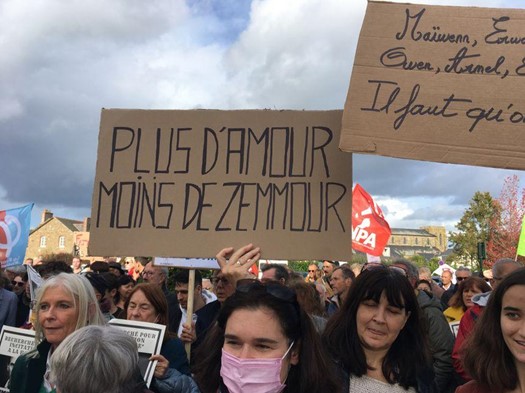
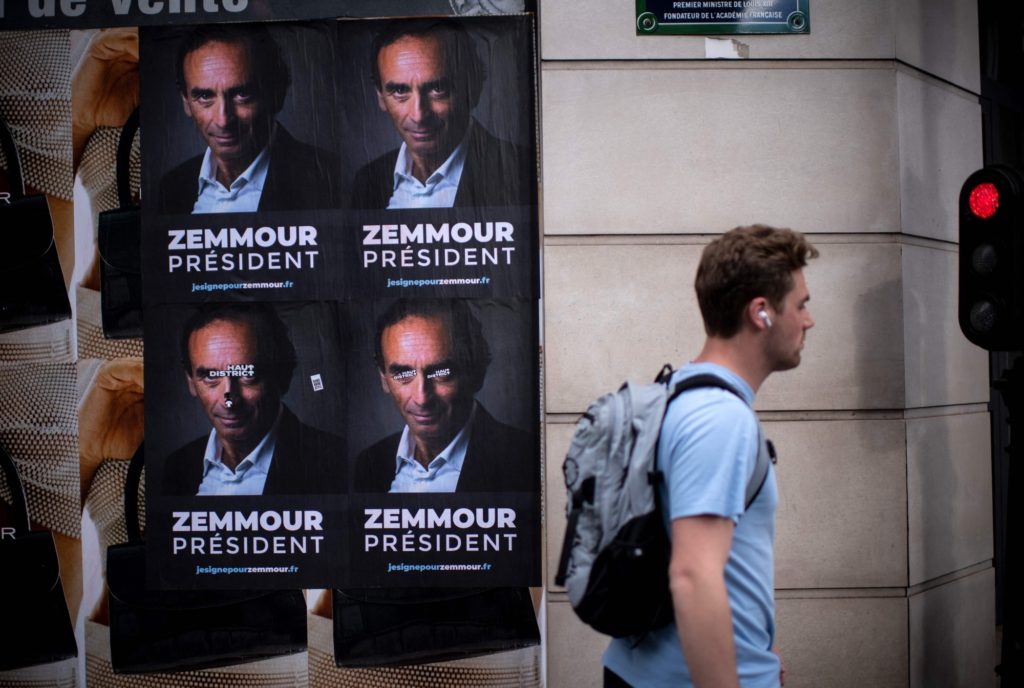
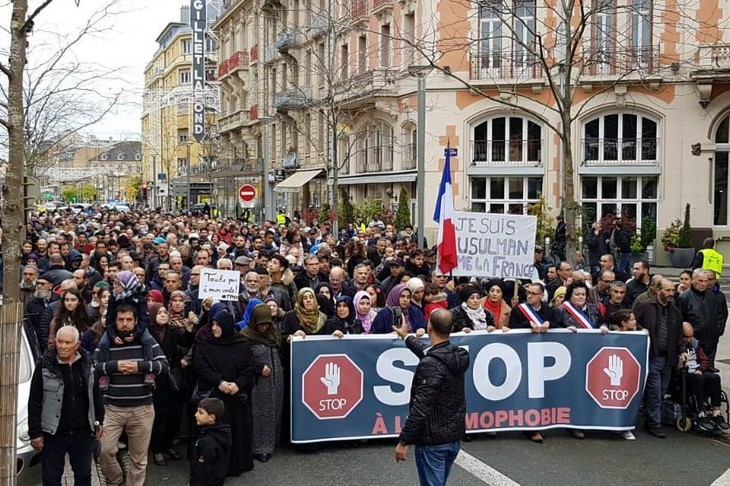
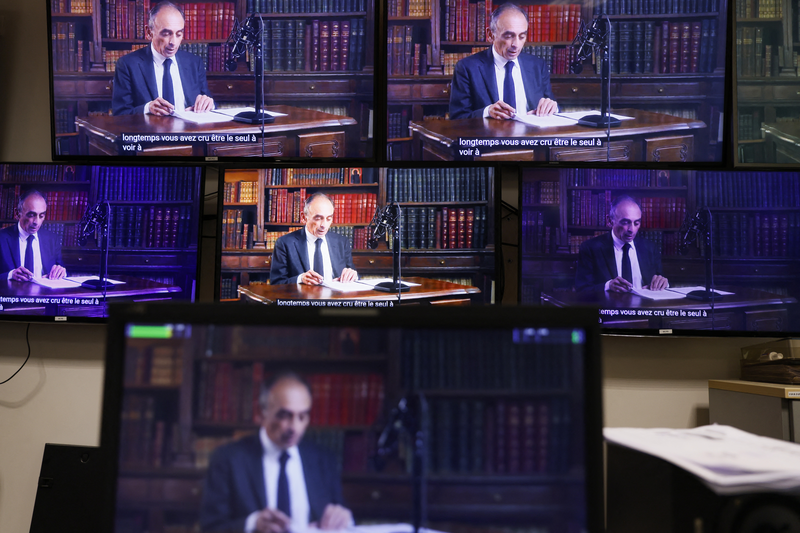

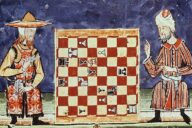











No Comments